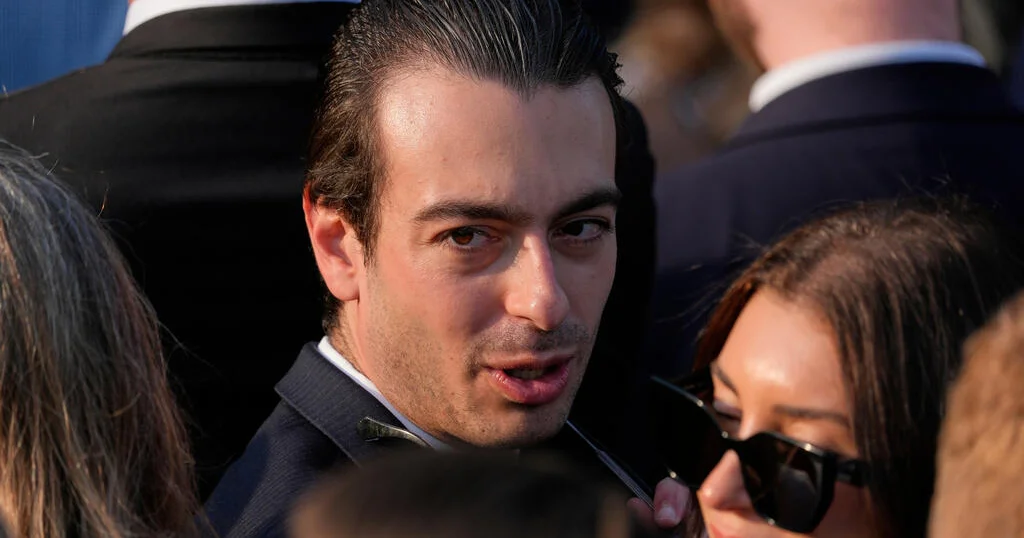In a significant turn of events, Paul Ingrassia, the recently nominated leader of the Office of Special Counsel, has withdrawn from a scheduled Senate hearing due to allegations of offensive text messages. These allegations, reported by a news outlet, raised concerns among Republican senators, affecting his nomination’s momentum. Ingrassia’s withdrawal leaves the future of his appointment uncertain, only further complicating an already controversial candidacy.
| Article Subheadings |
|---|
| 1) Allegations and Withdrawal |
| 2) Nomination Background |
| 3) Social Media Backlash |
| 4) Legal Defense |
| 5) Political Ramifications |
Allegations and Withdrawal
The controversy surrounding Paul Ingrassia erupted when he was accused of sending offensive text messages, including one in which he purportedly referred to himself as having “a Nazi streak.” Political news outlets reported these revelations, which prompted several Republican senators to reconsider their support for his nomination. Ingrassia, recognizing the lack of support, announced on X—a social media platform—his decision to withdraw from a scheduled Senate hearing. He stated, “Unfortunately, I do not have enough Republican votes at this time,” signaling the gravity of the situation and his intention to remain committed to his duties within the Trump administration.
Nomination Background
Paul Ingrassia was nominated in May to head the Office of Special Counsel by then-President Donald Trump. Described as a “highly respected attorney, writer, and Constitutional Scholar,” Ingrassia’s role would have involved overseeing whistleblower complaints and investigating misconduct involving the federal workforce. Since the dismissal of former head Hampton Dellinger, the office has lacked a Senate-confirmed leader. The nomination process unfolded in the context of increasing scrutiny on appointees in the Trump era, especially given the highly polarized political environment.
Social Media Backlash
Following the leaks concerning Ingrassia’s text messages, bipartisan criticism quickly surfaced. Senate Majority Leader John Thune expressed skepticism regarding Ingrassia’s prospects for confirmation, stating, “He’s not going to pass.” This sentiment was echoed by former House Speaker Kevin McCarthy, who remarked that the allegations were “disqualifying.” The text messages reportedly included derogatory remarks about civil rights leader Martin Luther King Jr., further intensifying opposition against Ingrassia. Such backlash has raised questions regarding the standards for political appointments and echoed longstanding debates within a divided Congress.
Legal Defense
Amidst the accusations, Ingrassia’s attorney, Edward Paltzik, came to his defense, dismissing the authenticity of the messages and cautioning against potential manipulation through artificial intelligence. Paltzik argued that even if Ingrassia did send the texts, they were intended as self-deprecating humor rather than serious reflections of ideology. He highlighted that there exists substantial support for Ingrassia within the Jewish community, asserting that the nominee is “the furthest thing from a Nazi.” This defense underscores a critical aspect of contemporary political discourse, which often intersects with evolving technologies and communication norms.
Political Ramifications
The developments concerning Ingrassia’s nomination illustrate the intricate dynamics of political appointments in a contentious legislative environment. His situation is emblematic of a broader trend, wherein personal conduct and public statements heavily influence political trajectories. Various Republican senators, including Thom Tillis, have voiced their disapproval, citing past allegations and sympathies that align with the rioters of January 6. This discourse illuminates the evolving criteria influencing nomination outcomes, revealing a party grappling with internal divisions while navigating external perceptions.
| No. | Key Points |
|---|---|
| 1 | Ingrassia withdrew from Senate hearing after backlash over allegedly offensive text messages. |
| 2 | He was nominated by Trump to head the Office of Special Counsel, which has lacked a Senate-confirmed leader. |
| 3 | Bipartisan criticism erupted, with several Republican senators openly opposing his nomination. |
| 4 | Ingrassia’s attorney defended him, claiming the texts were self-deprecating humor. |
| 5 | The unfolding situation highlights broader political dynamics and the scrutiny of nominees’ conduct. |
Summary
The withdrawal of Paul Ingrassia from consideration to lead the Office of Special Counsel not only highlights the personal consequences of public discourse but also reflects the current political climate within the Republican Party. As the Senate continues to evaluate the appropriateness of candidates, Ingrassia’s situation serves as a reminder of the challenges faced by those in political appointments amid growing scrutiny from peers and constituents alike. The implications of this episode may have lasting effects on nominee selections and the reputation of the Office of Special Counsel.
Frequently Asked Questions
Question: What is the Office of Special Counsel?
The Office of Special Counsel is an independent agency that investigates allegations of misconduct within the federal workforce and handles whistleblower complaints.
Question: Why did Ingrassia withdraw from the Senate hearing?
Ingrassia withdrew due to a lack of support from Republican senators after allegations of sending offensive text messages surfaced.
Question: How did Ingrassia’s attorney defend him against the allegations?
Ingrassia’s attorney claimed the messages were not authentic and cautioned against the potential for digital manipulation, suggesting the comments were meant to be self-deprecating humor.
